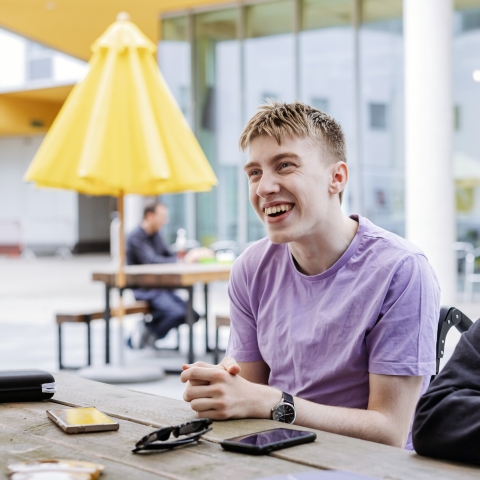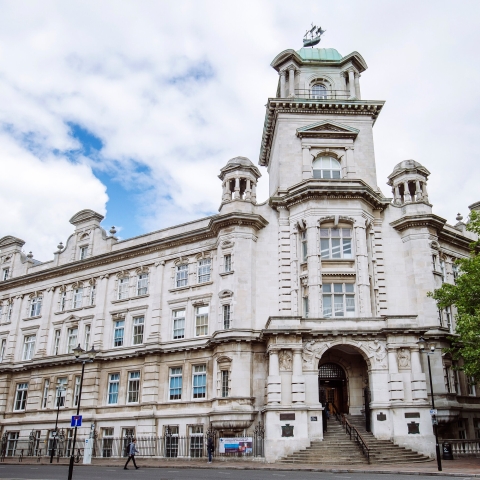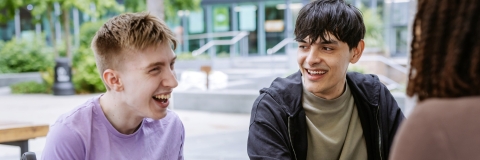
The Disability Advice team supports students and applicants who share a disability or require additional support for their academic studies.
We provide a confidential service for all students with additional learning needs and can give you advice on academic support.
We can also arrange reasonable adjustments to your studies and provide advice on evidence requirements, the Disabled Students' Allowance (DSA), technology support, and study skills.
Contact us, in confidence, if you have a condition that might impact your ability to access the campus, curriculum, teaching, learning, assessments or any other university service. We are here to listen, understand your disability-related needs and find the best ways to support you.
It’s best to contact us as soon as possible after you accept an offer – our staff can guide you through the whole process.
Support and guidance offered by Disability Advice
- Confidential advice from disability professionals, whether you are applying from the UK, the EU or internationally
- Advice on funding to cover disability-related support costs such as the Disabled Students’ Allowance, degree apprenticeships and other additional funding
- Discussion and agreement on reasonable adjustments
- Liaison with other University services and facilities, such as the Library
- Advice on note-taking, mentoring and other support services
- Access to specialist study skills and strategies tutors, and assistive technology tutors, on a 1-to-1 basis or in groups
- Liaison with external services such as DSA Needs Assessors and non-medical help suppliers
Tell us about you
If you need additional support resulting from a disability or specific learning difference, complete our short additional support questionnaire on your Student View.
If you are a student with one of our collaboration partners, please contact them to provide a needs assessment, discuss what help you need and what reasonable adjustments can be considered and implemented.
Academic support

Funding for disabled students

Autism toolkit

Access guides

Contact Disability Advice
- +44 (0)23 9284 3462
-
The Bateson Centre, Mary Rose Street, Portsmouth, PO1 2BL
We are open Monday to Thursday 8.30am – 5.00pm and on Friday, 8.30am – 4.00pm.
Visit our Linktree for more information on Student Services
Disability Advice Drop-Ins
- Monday to Friday 1.00pm - 3.00pm (excluding Wednesdays)
This will be an opportunity to briefly discuss your support with a member of the team.
This might include advice on reasonable adjustments or guidance on the Disabled Students Allowance. If a more extended conversation is required, a follow-up meeting can be arranged.
Please note: Disability Advice drop-ins are not bookable and are on a first-come, first-served basis.
Alternatively, email disabilityadvice@port.ac.uk or complete the Additional Support Questionnaire on your Student View.
Enable University alerts
Turn on notifications for critical updates like closures, safety alerts, and urgent service disruptions.






